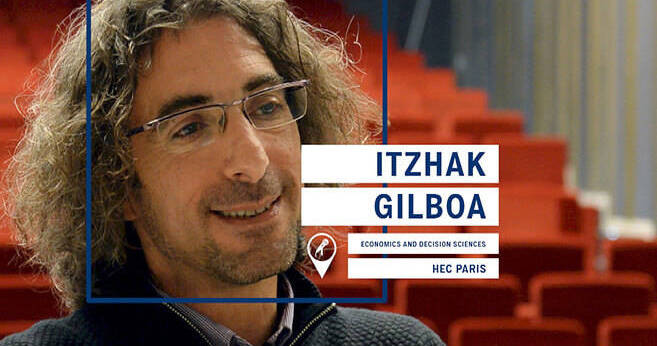Decision Scientists Remind of the Theories for Rational Policymaking During a Pandemic
HEC Paris Professor of Economics and Decision Sciences Itzhak Gilboa and fellow researchers have co-published an article calling for a dialog with decision makers. The recently-published article, “Rational policymaking during a pandemic” reminds legislators that modern decision theory can help policymaking become a more responsible and transparent process.

As the evolving COVID-19 health and economic crises have shown, policymaking during a pandemic is extremely challenging. In such a context, researchers from different disciplines and universities have co-written a paper recommending that decision makers use ideas and constructs based on modern decision theory to design more rational policymaking.
“I find it dangerous that decision theory be discarded at times of crisis because ‘this is real, and we have no time for formulae.’ I think that, if this happens, some of the fault lies with us, decision theorists, for being too rigid and expecting decision makers to accommodate the mold of our model. Hence, I find it important that we have a dialog with decision makers and decision scientists, which also discusses the right "language",” said Professor Gilboa.
The article “Rational policymaking during a pandemic” includes Itzhak Gilboa’s conceptual framework, whose tools can be used to support and refine intuition. This framework was explored in 2018 research co-authored with Olivier Sibony, Professor of Strategy and Business Policy, and Maria Rouziou (an HEC graduate who is currently an Assistant Professor at HEC, Montreal) and published in Research in Economics (the research is summarized by Knowledge@HEC). In the paper, the three researchers give examples of applications through three imaginary dialogs with executives faced with three different business cases.
The professors who co-authored the 2020 Proceedings of the National Academy of Sciences (PNAS) article work in economics, decision science, public health policies and climate change. They are from HEC Paris, the University of Lille, the University of Chicago, Bocconi University, and the London School of Hygiene & Tropical Medicine. The academics include Lars Hansen, who was awarded the Nobel Memorial Prize in Economics in 2013. Hansen was interviewed by an HEC journalist in 2019 on the theme of ambiguity and decision making under uncertainty. Hansen has also been very active in other fields such as climate change and COVID-19, as well as promoting non-standard approaches in decision making.
Other contributors include Massimo Marinacci, professor of Decision Sciences at Bocconi University, who was featured in the series of interviews on the “Uncertainty Across Disciplines” project led by HEC Professor and CNRS Research Director Brian Hill.
Knowledge@HEC publishes the latest research on Decision Sciences by HEC Paris professors in this topical dossier, "How to improve decision making".